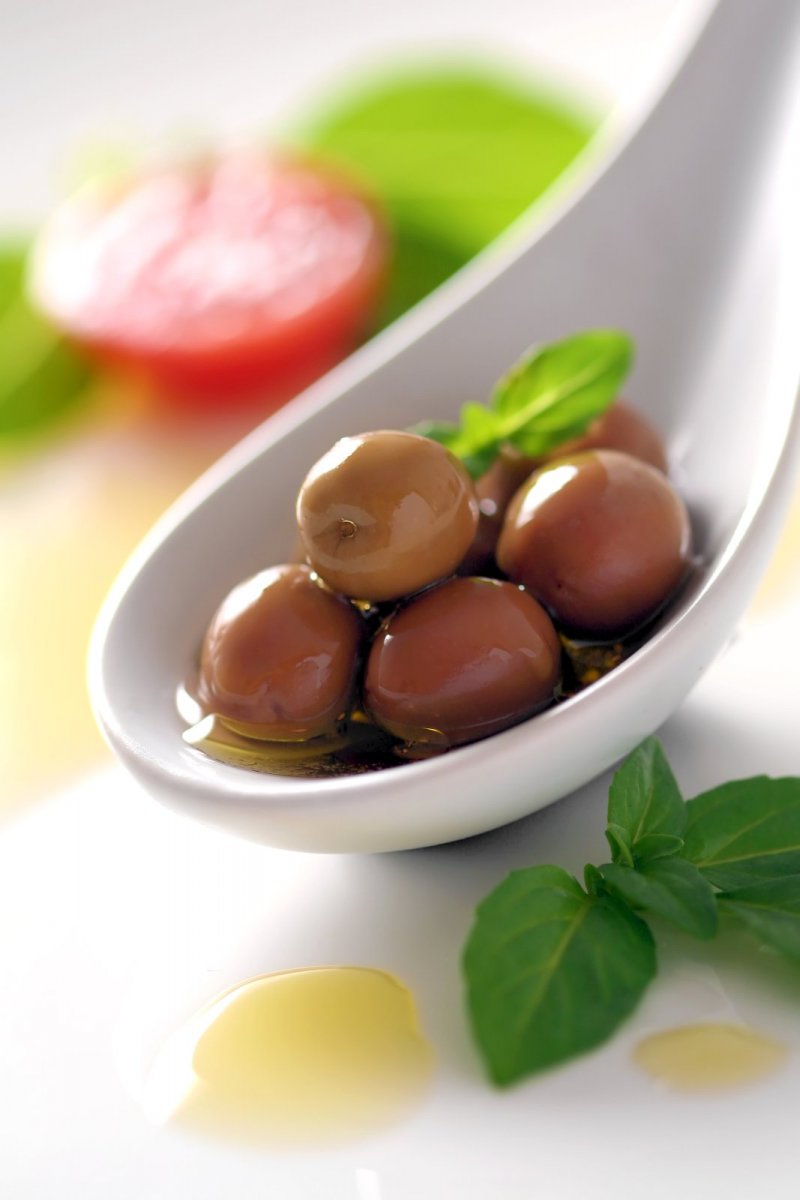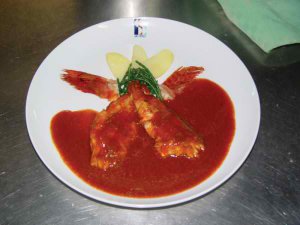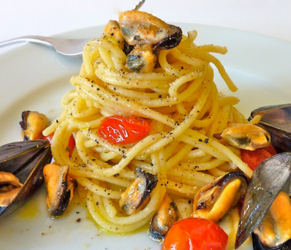"The whole Mediterranean," wrote Lawrence Durrell in "Prospero’s Cell," "seems to rise out of the sour, pungent taste of black olives between the teeth. "A taste older than wine, a taste as old as cold water." Nothing short of the sea itself is as indelible a part of the culture and cooking of Greece as the olive.
The olive is so important that Greek civil servants are given special leave each fall to go and tend to the olive harvest. Indeed, in the cold damp months of November, December, and January, many people leave the comforts of the city for their native villages in order to reap the fruit of the olive tree.
Greeks say "I ate bread and olives with him," to denote the beginning of a friendship. The olive branch is the universal symbol of peace. Like no other fruit, the olive is responsible for shaping an entire civilization.
Olives, as a source of nourishment, have been savored from prehistoric times in Greece. Archeological evidence -pits, for example, and pollen- found in various parts of the country, mainly Thessaly and Crete, indicate that the olive was an important food since Neolithic times.
Over time, of course, people worked out how to cure olives so that they tasted better -i.e., less bitter- and so that they could be stored for long periods of the year. The earliest and most basic way of doing this was simply to salt them. Until cuisine developed into an art, as it did by the classical era in Greece, salting was the fundamental and perhaps the only way to keep olives all year round. By Homeric times, olives had become a very important staple food, one that sustained farmers, shepherds, and travelers alike. To this day, olives, together with bread or rusks and a little cheese, comprise an important part of the traditional Greek farmer's midday meal eaten in the field.
By Classical Greece, villagers were differentiating between the different varieties of olives and had already begun to experiment with various ways of curing and seasoning them. For example, Homer sets the wrinkled black tree-ripened olives apart from all the others. In fact, Greek literature is rife with references to particular olives, olives with "good" and "mediocre" flesh.
The ancients were avid cooks and culinary experimenters, devising many different ways to cure and flavor olives. They knew, for example, that in addition to salting olives in order to preserve them, olives could also be stored in olive oil or in vinegar and thereby kept indefinitely. They made salt brines and also preserved olives in grape must and honey, or combinations of wine and honey. They used aromatic herbs, such as wild fennel and oregano, to season olives. Many of these techniques survive to this day. High technology has not really touched the ways in which olives are cured or seasoned. In fact, cured olives in modern Greece often go by the same names that the ancient Greeks gave to them. The Romans advanced the art of curing and seasoning olives even further. They were the first, for example, to use slaked lime and/or wood ash as a way to leach out the bitterness of raw olives.
Olives had a unique place on the ancient table because they were not only a food enjoyed by the masses, but also necessary to their survival. But they were also one of the most important early "appetizers," usually served, perhaps with a little bread, before the main part of the meal had begun. Together with cheese, pickled bulbs, and certain vegetables, olives comprised the list of absolutely necessary foods in the ancient larder, foods which no household ever lacked. Olives came under the category of "prosfagio," or food that was meant to be consumed before the actual meal. To this day, by and large, that is still the role that olives play on the Greek table. Greeks offer them often with a little ouzo or other eau de vie as a means of opening the appetite.
Olives in the Kitchen
For all their importance as one of the staples of the Greek kitchen, olives traditionally do not appear in many cooked dishes in Greece. The ancient Greeks considered the olive something that was meant to "open" the appetite, a food eaten with other small plates and with bread before the actual meal. Today, that is still very much the case. Olives are meze -appetizers- par excellence in Greece, and are almost always served up with a little bread or some rusks, cheese, and sometimes a few raw salted vegetables, such as radishes and cucumbers.
Nevertheless, there are some traditional dishes that include olives. First and foremost, is a whole array of salads. Olives are delicious matched with all sorts of vegetables, such as fresh ripe tomatoes, cucumbers, peppers, onions and more. They are wonderful with vegetables preserved in brine or olive oil, such as roasted red peppers, pickled peppers, pickled cauliflower, etc. Furthermoer, Greeks often use olives in sauces, namely tomato-based sauces that are served over pasta.
There are several breads and pies that call for olives, for example. In some parts of the country, stews often include olives. One such dish comes from the Ionian island of Zakynthos, where potatoes are stewed with onions, tomatoes and black olives. Another traditional dish, one that comes from the Peloponessos, is chicken stewed with green olives and feta. On the mainland, olives are roasted and served as a meze, and in Crete, one of the most delicious preparations a meze called "oftes elies" -roasted olives. This process intensifies the flavor and aroma of the olive and makes for one of the best appetizers in all of Greek cooking.
By and large, though, olives are meant to be savored as they are, a whole food, respected in their own rite.
Savoring the Olive
Although the Greeks have developed a plethora of recipes involving the olive over the past three millennia, the olive is best when served and savored on its own, in its own rite.
Country:
Category:
Related Articles
Most Popular recipes



































































